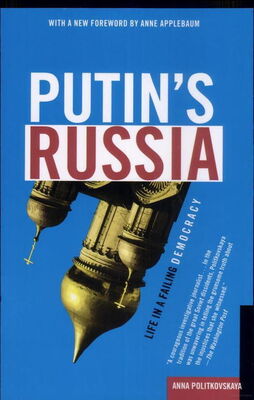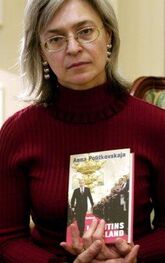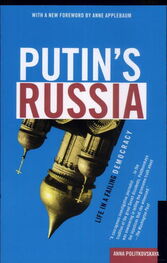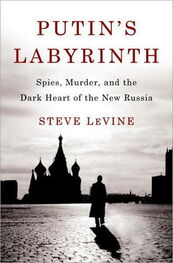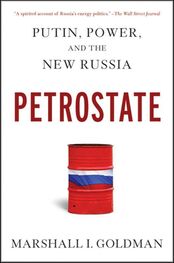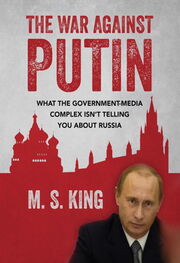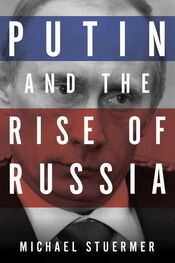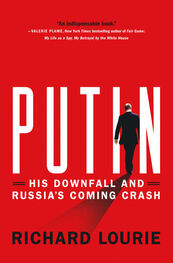AFTER BESLAN
On September 1, 2004, a horrible act of terrorism, one without precedent, was perpetrated in Russia, and from now on the name of the little North Ossetian town of Beslan will be associated with a waking nightmare beyond the imaginings of Hollywood.
On the morning of September 1, a multinational gang of thugs seized control of No. 1 school in Beslan, demanding an immediate end to the second Chechen war. The hostage takers struck during the annual lineyka , a celebration of the beginning of the school year that is observed throughout Russia. By tradition this is an occasion to which whole families come: grandmothers and grandfathers, aunts and uncles, and especially the relatives of the youngest children, who are going to school for the first time.
This is why almost 1,500 people were taken hostage: schoolchildren, their mothers and fathers, their brothers and sisters, their teachers and their teachers’ children.
Everything that happened during the period of September 1–3, and in Russia subsequently, has been the predictable consequence of the Putin regime’s systematic imposition of the power of a single individual, to the detriment of common sense and personal initiative.
On September 1 the intelligence services, and after them the authorities, announced that there actually were not that many people in the school: just 354 in all. The infuriated terrorists told the hostages, “When we have finished with you, there really will be only 354.” The relatives who had gathered around the school said the authorities were lying: more than a thousand people were trapped inside.
Nobody heard what the relatives were saying, because nobody was listening. They tried to get their message through to the authorities by way of the reporters who had converged on Beslan, but the journalists went on echoing the official tally. At this point, some of the relatives started beating up some of the journalists.
The authorities spent September 1 and the first half of September 2 in an unforgivable state of shock and disarray. No attempts were made to negotiate, since such a move had not been sanctioned by the Kremlin. Anybody attempting to lay the groundwork for negotiations was subjected to intimidation, while those whom the bandits called upon to come forward and negotiate—President Zyazikov of Ingushetia; President Dzasokhov of North Ossetia; Putin’s adviser on Chechnya, Aslambek Aslakhanov; and Dr. Leonid Roshal (who had mediated in previous sieges)—kept their heads down or fled the country, displaying cowardice at the very moment when courage was essential. Each of them subsequently had his excuses ready, but the obstinate fact remains that none of them entered the building.
Against this background of official cowardice, relatives of the hostages were terrified that there would be a repetition of the government’s tactic for ending the Nord-Ost siege at a Moscow theater in 2002, when they mounted an assault that resulted in the loss of an enormous number of innocent lives.
On September 2, Ruslan Aushev, the former president of Ingushetia, entered the beleaguered school. Reviled by the Kremlin for constantly calling for peace talks and a political settlement of the Chechen crisis, Aushev had been forced to “voluntarily” resign in favor of the Kremlin’s candidate, FSB general Zyazikov.
Arriving in Beslan, Aushev had found a deplorable situation, as he later recounted. He discovered that, one and a half days after the school had been seized, none of those in the headquarters of the operation to free the hostages was at liberty to decide who should take part in negotiations. They were waiting for instructions from the Kremlin and paralyzed by the fear of losing favor with Putin, whose displeasure would signal the end of their political careers. Evidently this consideration took priority over concern for the predicament of the hundreds of hostages. The deaths of hostages could always be blamed on the terrorists, whereas running afoul of Putin would be political suicide.
Let me state unambiguously that all the top Russian government representatives in Beslan at that time were more concerned to work out what Putin wanted than to work out a way of resolving the monstrous situation in the school. When Putin did speak, no one dared to contradict. Dzasokhov, for example, told Aushev that Putin had personally telephoned him and forbidden him to enter the school if he didn’t want to face immediate criminal charges.
Dzasokhov stayed put. Dr. Roshal fared no better. Although a pediatrician, he failed on this occasion to save anyone other than himself, having been warned by an unnamed intelligence source that the terrorists were calling for him as a negotiator only in order to kill him. He, too, stayed put.
The officials in the operational nerve center succeeded in saving their careers but failed to save the children. Even before the showdown on September 3, it was obvious that Putin’s vertical system of authority, founded on fear of and total subservience to one individual, himself, was not working. It was incapable of saving lives when that was what was needed.
Faced with this situation, Aushev printed off the Internet a declaration by Aslan Maskhadov, the leader of the Chechen resistance in whose name the thugs claimed to be acting. Because Maskhadov had stated categorically that he was against the taking of children as hostages, Aushev took this declaration and went in to talk to the terrorists. In the course of the Beslan catastrophe, he was to be the only person to conduct negotiations of any sort.
For his pains he was roundly abused by the Kremlin and accused of collaborating with the terrorists.
“They refused to talk to me in Vainakh,” Aushev related afterward, “although they were Chechens and Ingushetians. They would speak only in Russian. They asked at least to have a minister sent to negotiate—for example, Fursenko, the minister for education—but nobody was willing to go in without the sanction of the Kremlin.”
Aushev was in the school for about an hour and carried three babies out in his arms. A further twenty-six small children were allowed to leave with him. At two in the afternoon on September 3, an assault was launched, and fighting continued in the town until late into the night. Many of the terrorists were killed, but many others broke through the cordons and escaped. Officialdom began counting how many hostages had died, and is still counting today. A field was plowed up on the outskirts of Beslan and turned into an enormous cemetery with hundreds of new graves. At the time of this writing, more than one hundred hostages have simply vanished: they are classified as having disappeared without a trace. Some people believe they were abducted by the terrorists who escaped; others, that they were incinerated by the incendiary warheads of the rockets with which the special operations units were equipped.
In the immediate aftermath of Beslan there was a further tightening of the political screws. Putin announced that the tragedy had been an act of international terrorism, denying the Chechen connection and blaming everything on al-Qaeda. Aushev’s courageous intervention was denigrated and the mass media, on instructions from the Kremlin, set about portraying him as the terrorists’ principal accomplice rather than as the only hero of the hour. That role was reserved for Dr. Roshal, since the masses need heroes to admire.
In political terms, Beslan did not prompt the Kremlin to analyze and correct its mistakes. On the contrary, the Kremlin went on a political rampage.
Putin’s favorite slogan after Beslan was “War is war.” His top-down authoritarianism must be strengthened. He knew better than anyone else who was responsible for what, and only if he held the reins would Russia be safe from terrorist acts in the future. The Kremlin introduced a bill in the Duma abolishing direct election of provincial governors; in Putin’s opinion, it only led to their acting irresponsibly.
Читать дальше